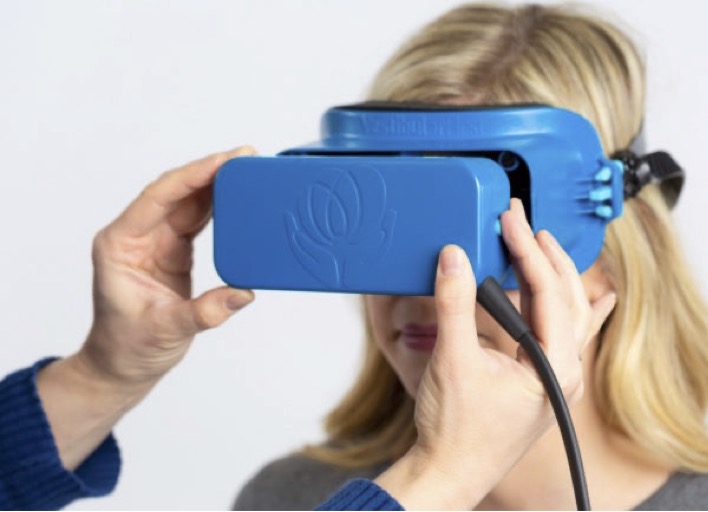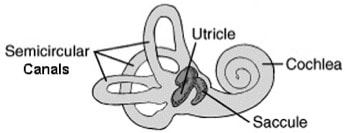- Home
-
Services
- Dry Needling >
- Vestibular Physiotherapy in London Ontario >
- Pelvic Health >
- Scoliosis Physiotherapy >
- Sport Physiotherapy in London Ontario | Elevate Physio
- Climbing Injuries in London Ontario | Elevate Physio
- Manual Therapy in London Ontario | Elevate Physio
- Concussion Physiotherapy in London Ontario | Elevate Physio
- Stott Pilates Rehabilitation in London Ontario | Elevate Physio
- About Us
- News
- FAQs
- Contact
- Request Appointment
Vestibular Physiotherapy appointments
- Elevate Physiotherapy is equipped to assess and treat BPPV, vertigo, dizziness and balance issues.
- Treatments include repositioning maneuvers (including the Epley maneuver) for BPPV, gaze stabilization exercises, activities to improve motion tolerance and balance exercises.
- We may use infrared goggles to observe your eye movements in order to properly assess you and personalize your treatment.
Vestibular Physiotherapy
Do you sometimes experience a spinning sensation, dizziness, or imbalance?
Specialized physiotherapy assessment and treatment techniques can help resolve or improve your symptoms so that you can participate in the things you love to do!
What is Vestibular Rehabilitation?
Physiotherapists who practice Vestibular Rehabilitation have undergone advanced training to address the care of patients with dizziness. Treatments for vestibular concerns are individualized once specific causes dizziness have been established. Possible treatments include repositioning maneuvers (for BPPV), gaze stabilization exercises, activities to improve motion tolerance, balance exercises, stretching, strengthening, and falls prevention. Physiotherapists may also incorporate additional treatments and education using a holistic approach to address each patient’s condition and needs.
What are common symptoms of vestibular disorders?
Symptoms of vestibular dysfunction may be mild, lasting perhaps only seconds or minutes, or they may be severe. Common symptoms of vestibular disorders include:
What conditions do vestibular physiotherapists treat?
Common conditions that benefit from vestibular physiotherapy include:
What is the vestibular system?
The vestibular system can be divided into two main systems: the central system (the brain and brainstem) and the peripheral system (the inner ear and the pathways to the brainstem). The inner ear, known as the labyrinth, contains two primary structures: the cochlea, responsible for hearing, and the vestibular apparatus, responsible for maintaining balance, stability, and spatial orientation.
Our brain processes information from our VISION (eyes), SOMATOSENSORY SYSTEM/PROPRIOCEPTION (Muscles and Joints) and VESTIBULAR (Inner ear) systems. Input from these three systems is integrated and processed by the brain. Feedback is sent to the eyes to help maintain steady vision and to the muscles to help maintain posture and balance. If there is impairment or misinformation coming from any of these systems, dizziness, vertigo, and imbalance may occur.
The peripheral vestibular system itself consists of a pair of vestibular apparatuses that lie in the inner ear. Each of these has three semicircular canals that detect angular motion and two otolithic organs, the utricle and saccule, which detect linear acceleration and deceleration (see figure).
Specialized physiotherapy assessment and treatment techniques can help resolve or improve your symptoms so that you can participate in the things you love to do!
What is Vestibular Rehabilitation?
Physiotherapists who practice Vestibular Rehabilitation have undergone advanced training to address the care of patients with dizziness. Treatments for vestibular concerns are individualized once specific causes dizziness have been established. Possible treatments include repositioning maneuvers (for BPPV), gaze stabilization exercises, activities to improve motion tolerance, balance exercises, stretching, strengthening, and falls prevention. Physiotherapists may also incorporate additional treatments and education using a holistic approach to address each patient’s condition and needs.
What are common symptoms of vestibular disorders?
Symptoms of vestibular dysfunction may be mild, lasting perhaps only seconds or minutes, or they may be severe. Common symptoms of vestibular disorders include:
- Imbalance or unsteadiness – feeling off balance or a loss of equilibrium
- Vertigo – a spinning sensation; an illusion of the self or world moving
- Dizziness – a lightheaded, floating, or rocking sensation
- Motion Sensitivity
- Blurred or bouncing vision
- Nausea
- Hearing changes
- Anxiety
- Lack of coordination
- Problems with concentration and memory
What conditions do vestibular physiotherapists treat?
Common conditions that benefit from vestibular physiotherapy include:
- Benign Paroxysmal positional vertigo (BPPV)
- Labyrinthitis or vestibular neuritis
- Age related dizziness or imbalance
- Concussion or Traumatic Brain Injury
- Central Vestibular Disorders
- Vestibular migraine
- Ménière’s disease
- Cervicogenic Dizziness
- Acoustic Neuroma / Vestibular Schwannoma
- Mal de’ Debarquement Syndrome
- Neurotoxic Vestibulopathy or Ototoxicity
- Persistent Postural Perceptual Dizziness (3PD)
What is the vestibular system?
The vestibular system can be divided into two main systems: the central system (the brain and brainstem) and the peripheral system (the inner ear and the pathways to the brainstem). The inner ear, known as the labyrinth, contains two primary structures: the cochlea, responsible for hearing, and the vestibular apparatus, responsible for maintaining balance, stability, and spatial orientation.
Our brain processes information from our VISION (eyes), SOMATOSENSORY SYSTEM/PROPRIOCEPTION (Muscles and Joints) and VESTIBULAR (Inner ear) systems. Input from these three systems is integrated and processed by the brain. Feedback is sent to the eyes to help maintain steady vision and to the muscles to help maintain posture and balance. If there is impairment or misinformation coming from any of these systems, dizziness, vertigo, and imbalance may occur.
The peripheral vestibular system itself consists of a pair of vestibular apparatuses that lie in the inner ear. Each of these has three semicircular canals that detect angular motion and two otolithic organs, the utricle and saccule, which detect linear acceleration and deceleration (see figure).
How can Physiotherapy help?
The goal of physiotherapy is to reduce or resolve symptoms of dizziness or vertigo, improve balance and oculomotor function, improve neck mobility without pain or dizziness, and provide compensatory strategies to cope with symptoms. Possible treatments and interventions may include repositioning maneuvers (for BPPV) by your Physiotherapist, balance and proprioceptive exercises, visual exercises, manual therapy, stretching, strengthening, and falls prevention. Education in self management strategies, body awareness, breathing exercises and lifestyle modifications may also be an important part of therapy. Your Physiotherapist will take a holistic approach to your condition and unique needs. Your Physiotherapist can also facilitate referrals to other specialists and recommend other types of treatment that may be useful to achieve your goals.
What can I expect at my initial visit?
Your initial visit will be an assessment with a Physiotherapist with advanced training in Vestibular Rehabilitation. The first step will be to take a detailed history of your symptoms, as well as your health history to determine if there are other contributing factors to your vertigo or dizziness.
A physical assessment will include looking at posture and gait, balance, mobility, coordination, flexibility, and gaze control. Eye movements occurring with various positional changes may be recorded with special infrared video goggles that help with diagnosis based on involuntary eye movements that are detected.
The goal of physiotherapy is to reduce or resolve symptoms of dizziness or vertigo, improve balance and oculomotor function, improve neck mobility without pain or dizziness, and provide compensatory strategies to cope with symptoms. Possible treatments and interventions may include repositioning maneuvers (for BPPV) by your Physiotherapist, balance and proprioceptive exercises, visual exercises, manual therapy, stretching, strengthening, and falls prevention. Education in self management strategies, body awareness, breathing exercises and lifestyle modifications may also be an important part of therapy. Your Physiotherapist will take a holistic approach to your condition and unique needs. Your Physiotherapist can also facilitate referrals to other specialists and recommend other types of treatment that may be useful to achieve your goals.
What can I expect at my initial visit?
Your initial visit will be an assessment with a Physiotherapist with advanced training in Vestibular Rehabilitation. The first step will be to take a detailed history of your symptoms, as well as your health history to determine if there are other contributing factors to your vertigo or dizziness.
A physical assessment will include looking at posture and gait, balance, mobility, coordination, flexibility, and gaze control. Eye movements occurring with various positional changes may be recorded with special infrared video goggles that help with diagnosis based on involuntary eye movements that are detected.

Infrared Video Goggles allow for observing the eyes in the dark (removing the ability to focus on a target), enlarge the eyes on a screen for easier viewing, and record the eye movements for repeated playback. We utilize these goggles at Elevate Physiotherapy to aid in providing an accurate diagnosis, which in turn can improve treatment outcomes.
If you would like to know more about our vestibular rehabilitation services, or to speak to a physiotherapist, please call the clinic at 519 719 1782.
For more information about Vestibular Disorders, their management, and to find further support, visit:
Vestibular Disorders Association (VeDA)
Balance and Dizziness Canada
Sources:
VEDA (Vestbular Disorders Association): https://vestibular.org/article/what-is-vestibular/causes-of-dizziness/
VEDA (Vestbular Disorders Association): https://vestibular.org/article/what-is-vestibular/causes-of-dizziness/
Elevate Physiotherapy London Ontario
PhoneAddress172 Wortley Road
London Ontario N6C 3P7 Online Booking |
|
Proudly powered by Weebly
- Home
-
Services
- Dry Needling >
- Vestibular Physiotherapy in London Ontario >
- Pelvic Health >
- Scoliosis Physiotherapy >
- Sport Physiotherapy in London Ontario | Elevate Physio
- Climbing Injuries in London Ontario | Elevate Physio
- Manual Therapy in London Ontario | Elevate Physio
- Concussion Physiotherapy in London Ontario | Elevate Physio
- Stott Pilates Rehabilitation in London Ontario | Elevate Physio
- About Us
- News
- FAQs
- Contact
- Request Appointment


